Make faster your new normal: The riders 'locking in' their lockdown gains for 2022
One surprise effect of lockdown was that many cyclists made transformative fitness gains. How can we learn from them to ‘lock in’ the positive changes? Deena Blacking finds out
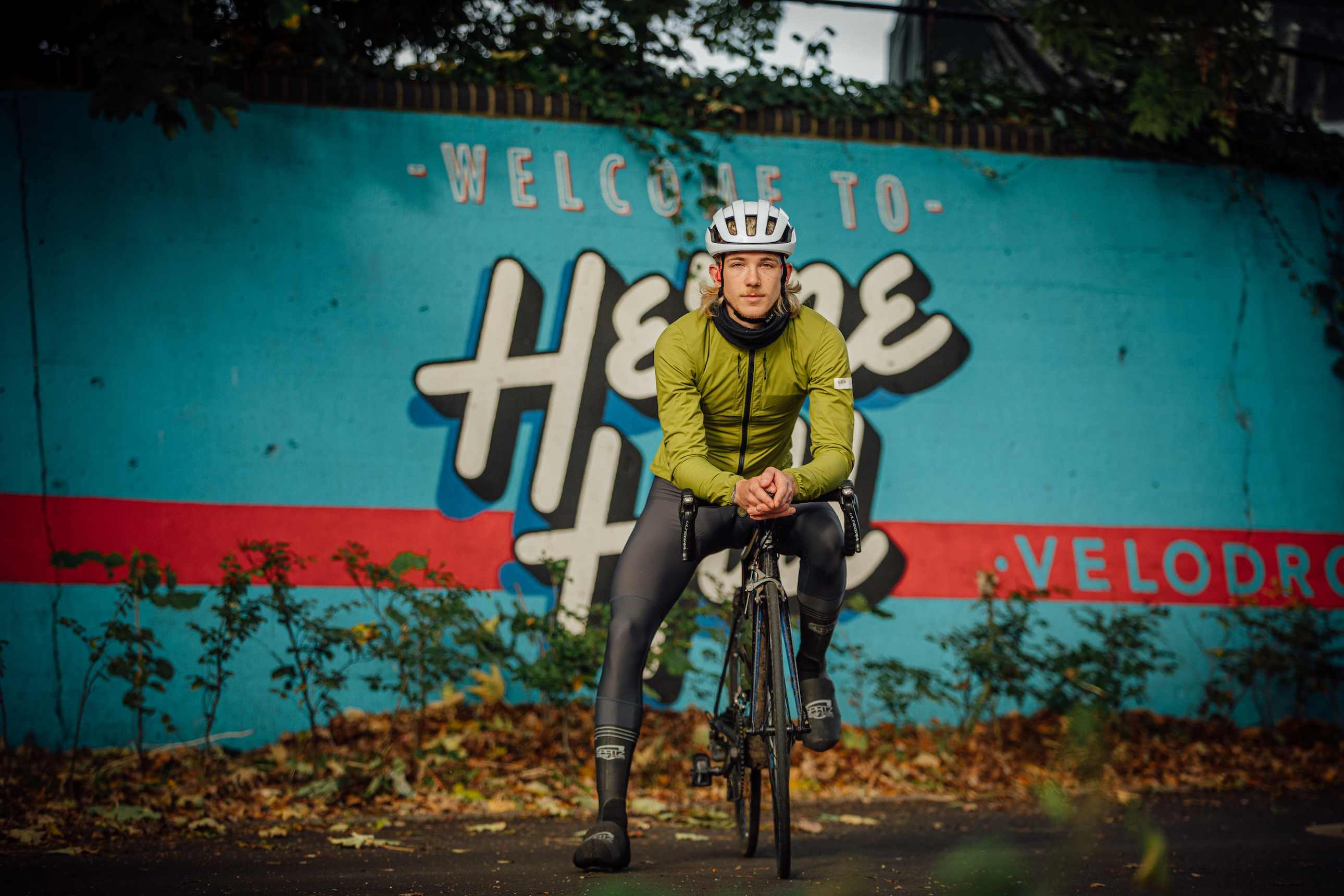
The latest race content, interviews, features, reviews and expert buying guides, direct to your inbox!
You are now subscribed
Your newsletter sign-up was successful
A few months ago, I turned up to the regular Tuesday morning paceline ride. When I say ‘regular’, it had been a while for me. I hadn’t trained with this group since the pandemic began in March 2020. Just minutes after pulling away, it was clear that I was nowhere near their level anymore. After 15 minutes of pain, I was dropped like a stone. What was going on? How had people that I used to keep up with destroyed me so soundly?
“The lockdown gains are real,” diagnosed Danni Shrosbee (Team Brother UK-LDN) over coffee afterwards. “This year’s women’s national series was at least a few miles per hour quicker.” Sitting alongside her, Tom Fairley (Stayer Racing) agreed: “Even the men’s Cat 4 races are hitting averages above 45kph!”
When I checked my Strava later, I saw that I had achieved some notable personal bests on the ride despite feeling like I was falling short. It wasn’t that I had detrained or slowed down, it was that those who had leveraged lockdown were now reaping the rewards – in spectacular fashion. So what are the secrets of their success? What are the lockdown changes, implemented from March 2020 onwards, that made such a telling difference? More importantly, how can we all learn from their example to ‘lock in’ the gains as life returns to normal? We tracked down five riders who each transformed their riding and asked them to share their experience to help the rest of us get back on terms with them.
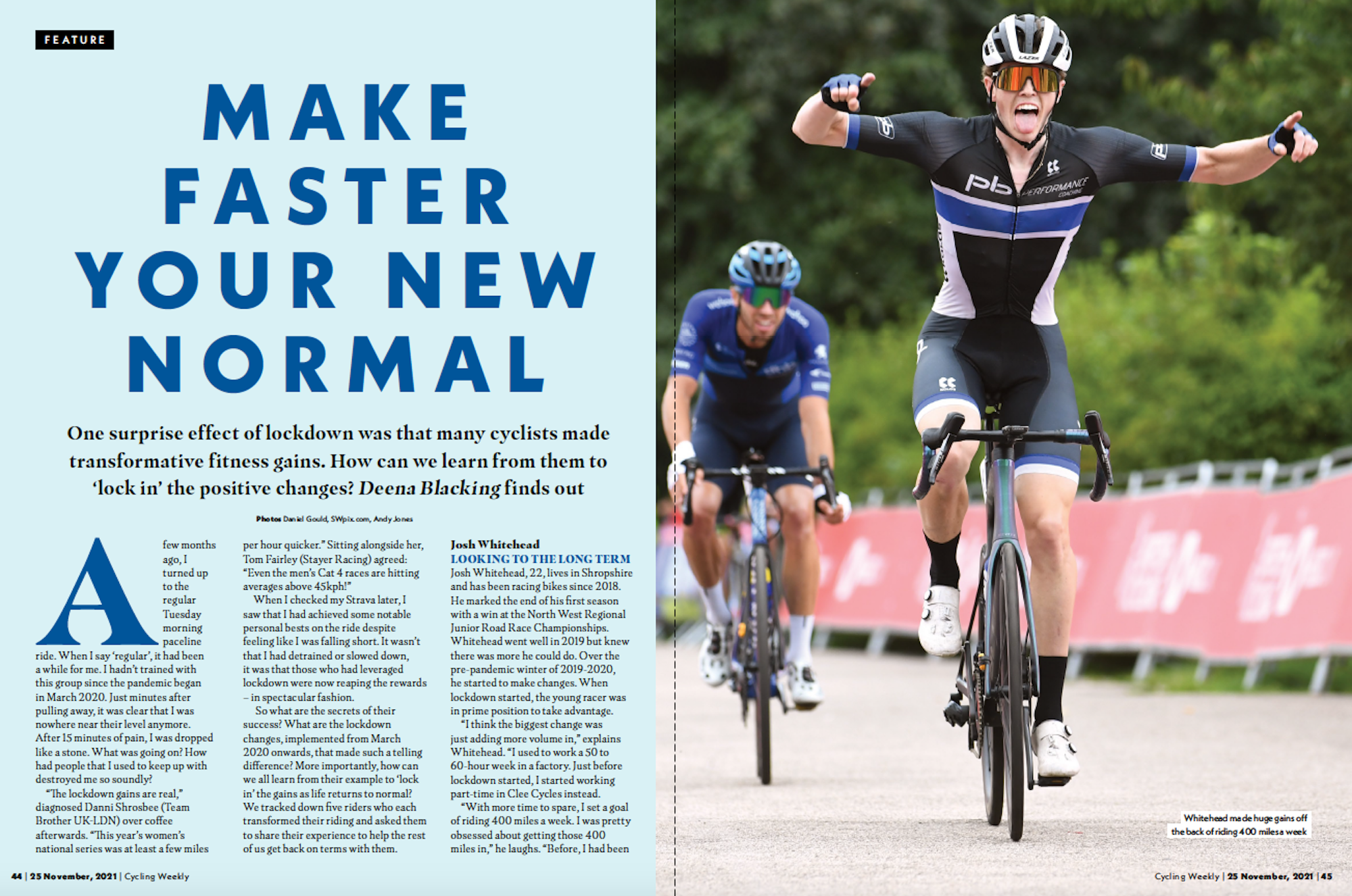
Josh Whitehead: Looking to the long term
Josh Whitehead, 22, lives in Shropshire and has been racing bikes since 2018. He marked the end of his first season with a win at the North West Regional Junior Road Race Championships. Whitehead went well in 2019 but knew there was more he could do. Over the pre-pandemic winter of 2019-2020, he started to make changes.
When lockdown started, the young racer was in prime position to take advantage. “I think the biggest change was just adding more volume in,” explains Whitehead. “I used to work a 50 to 60-hour week in a factory. Just before lockdown started, I started working part-time in Clee Cycles instead. “With more time to spare, I set a goal of riding 400 miles a week. I was pretty obsessed about getting those 400 miles in,” he laughs. “Before, I had been averaging 16-17 hours a week, so it was a big jump. I added in some mtb and CX too. I enjoyed it and my bike-handling skills definitely improved.”
As well as adding volume, Whitehead bought a power meter. “To begin with, I didn’t really know what to do with it,” he confesses. “Then I did a 20-minute FTP test and learnt about zones. When I started doing Zone 2 rides properly, I realised that I hadn’t been pressing on the pedals hard enough pre power meter.” He also sought help from a nutritionist, who improved how he fuelled for sessions and races.
Living in Shropshire, Whitehead has some exceptional training partners. “The cyclists where I live are mega, including Andy Tennant, Ben Healey, Jacob Tipper, and Leah Dixon. We’d do a 60-70 mile ride together every Saturday. “After watching Ben [Healey] doing efforts, I saw how much stronger he was – that made me hungrier to train,” enthuses Whitehead. “He’s probably one of the best U23 riders in the world, and I get to train with him.”
The latest race content, interviews, features, reviews and expert buying guides, direct to your inbox!
He also took some time to think ahead. “During lockdown, I made a five-year plan: the progress I’m going to make, where I want to be and the results I want to get,” adds Whitehead. “I printed out pictures of sports heroes and stuck them on my door so I could be inspired by them every day. I am always motivated by goals.”
Then he turned to his upcoming season. “Once I knew I was on PB Performance for 2021 and that I’d be racing the National Series, I was even more motivated,” he reveals. “Watching all the highlights of the races, I was excited to know that I would be competing against the UK’s top cyclists. It was especially motivating to know that some of the pros were less motivated to train during lockdown,” says Whitehead. “I wanted to make the most of the situation and bridge the gap between my performance and theirs.”
What about this year? “As things went back to normal this summer, I was still focused on the Nationals. I don’t go out loads, so things opening up didn’t affect me much,” says Whitehead. On 15 August this year, he took a stunning victory at the Lancaster GP, one of the three races in the 2021 HSBC National Series. Around the same time, he was snapped up by British UCI Continental team, Swift- Carbon Pro Cycling. “I am really motivated for next year,” says Whitehead. “I’m on Swift at the moment and I’ve had some good team offers. I’m looking forward to racing the top guys in UCI races next year, which I’ve never done before.”
How he did it: Increased training volume – dramatically; paid attention to all aspects of performance, including nutrition and bike handling; set inspiring and ambitious goals.
How he’s locking in the gains: Keeping up the dedication and consistency; continuing to set ambitious goals; using challenges as a positive motivator.
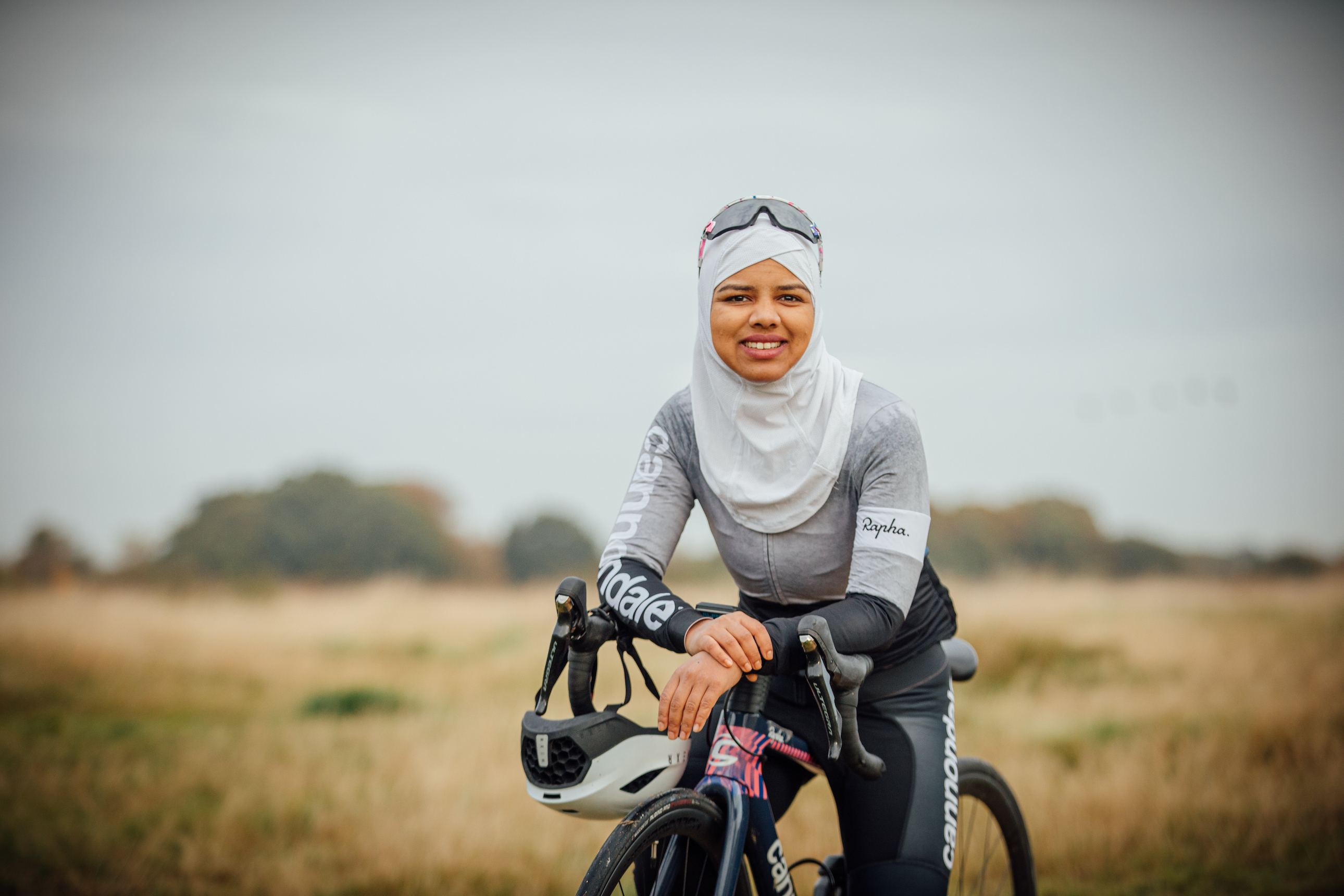
Shuhena Islam
Shuhena Islam: Redefining the cyclist within
Shuhena Islam, 31, is a lawyer from Essex who started cycling in her mid- 20s. Lockdown for Islam was a time for building confidence, breaking old boundaries and learning more about her own potential. “The pandemic was a blessing in disguise. I started doing things that I didn’t believe I could do,” she says. “Without the constraints of a club ride, my friend and I started to push ourselves, going faster and further than we had before.”
It was a chance to go after some landmarks. “We’d never done a century ride,” Islam continues. “We said to ourselves, ‘Why don’t we visit the places that we haven’t been to?’ The fact that there weren’t other commitments, such as social meetings and errands, meant that we could ride from sunrise to sunset. We rode with a sense of adventure and freedom that we never would have had during normal life.”
Between outdoor rides, Islam was regularly jumping on the turbo trainer. “Indoor group sessions on Zwift also gave me more confidence as a rider,” she adds. “Coach Watto’s [Ian Watson] Thursday morning sessions moved online during lockdown – I would never have attended his training sessions in real life before that. Indoor training sessions also got me through the winter.”
The gains became self-perpetuating. “As I improved, I wanted to step things up,” says Islam. “I bought a power meter and I started working with a female cycling coach, which really helped, although she tells me things that I don’t understand,” she laughs.
In August, Islam cycled from London to Paris. It was the first time she’d cycled four days in a row. “It really gave me confidence,” exclaims Islam. “Now I am thinking about doing Land’s End to John o’ Groats in 2022 to see if I can ride nine days in a row.” What are her goals for next year? “For me, I really
How she did it: Had the courage to try new things; found friends and communities to ride with; increased commitment to training and got a coach.
How she’s locking in the gains: Continuing to explore and experiment; building communities for other riders; setting ever bigger goals, working with a coach.
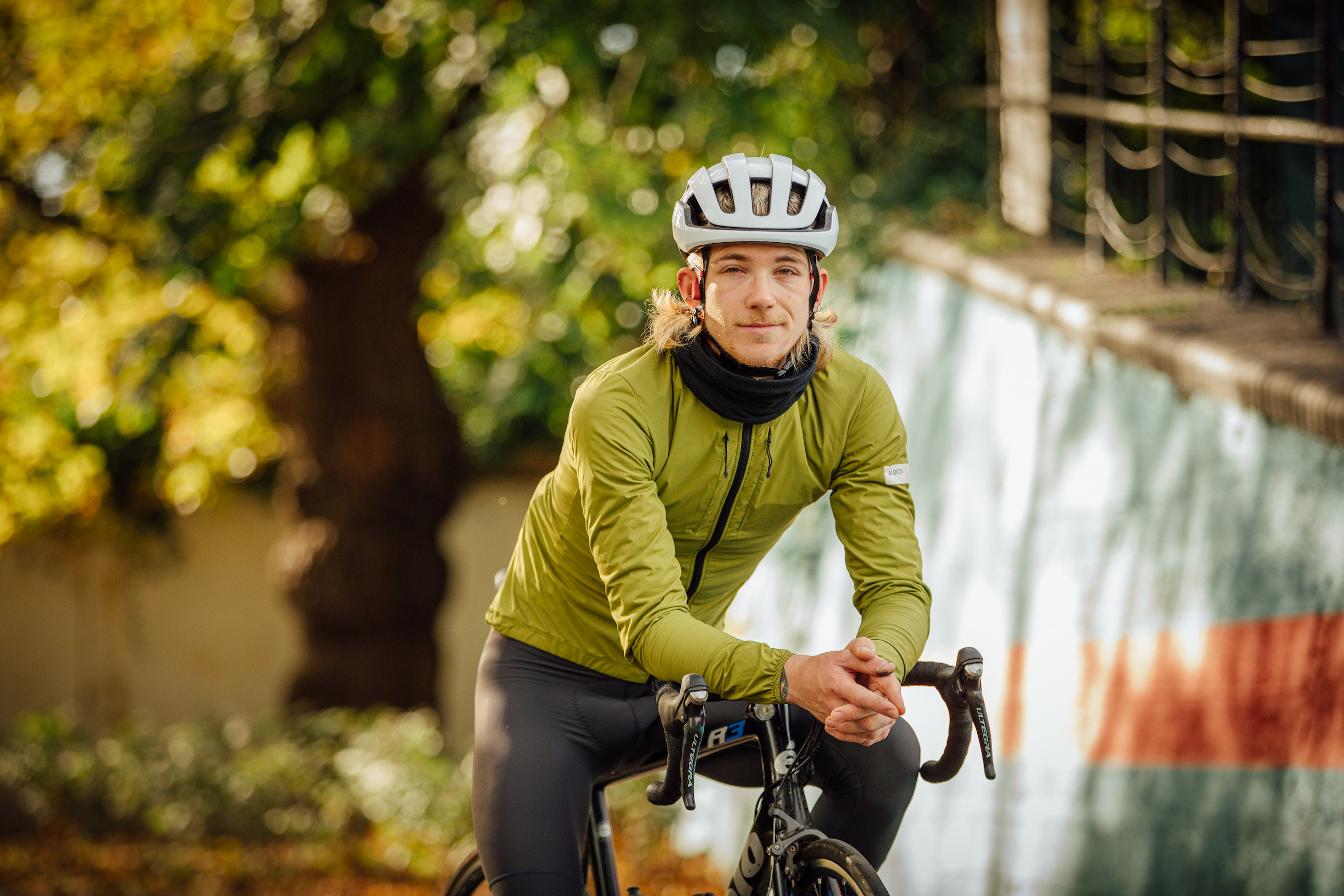
Boru McCullagh
Boru McCullagh: Reigniting the fire
Boru McCullagh, 22, is a coach at Herne Hill Velodrome. He started racing bikes in 2010 at Velo Club Londres with the likes of Ethan Hayter and Fred Wright. Like many youth riders, McCullagh stopped racing in his late teens, although he continued in the sport as a coach. At the start of 2020, just before the pandemic, he decided to dust off his road bike.
“I returned to cycling for a few reasons: I wanted to get fit; as a young coach, I felt weird saying, ‘I used to cycle’,” he explains. “I also missed the fun of it – when I’d see everyone having a good time at Track League I thought, ‘I want to experience that again’.”
McCullagh started with an achievable goal. “I said I’d do one ride a month. During my first 60km ride, I had to call my mum to come and pick me up. I was so not used to it. That first awful ride gave me more drive to improve and ride more.”
Luckily, this experience was a positive motivator for McCullagh. “‘Once I got into the habit, I wanted to do more. When you start out again, you see big improvements. You have to do little to gain a lot. It was motivating to see the improvements and I enjoyed being out on the road.”
Lockdown lessons learned
Consistency is key: Whether you ride eight or 18 hours a week, consistency is a key theme for progress. “The success I’ve had this season is showing just how important it is to have consistency in training, month after month,” noted Alex Peters.
Commit as much to recovery as to training: There are no shortcuts – endurance gains take time, for recovery as well as for training. “I was getting more sleep as well as getting in more volume,” stressed Iain McNaught.
Set ambitious, motivating goals: Goals provide focus, motivation and accountability. All of our featured riders set goals that drove their training. Targets can range from personal to podium achievements; whatever you choose, make sure it’s motivating for you. “I will be happy as long as I can see myself making progress, knowing that I am growing and improving as a rider,” explained Shuhena Islam.
Share the experience: Although lockdown was lonely for many of us, cyclists found motivation through community and shared experiences. Training partners and teams offer a surefire way to stay motivated. “My training partners were mega… Seeing the progress Ben Healey was making made me hungrier to train,” explained Josh Whitehead.
Do more of what you enjoy: Every rider benefited from enjoying the process. Even when training is tough, enjoyment – or at least a sense of satisfaction – is essential. “All of my progress came out of enjoyment and passion,” summed up Boru McCullagh.
By the end of 2020, McCullagh was regularly clocking up 10-15 hours a week on the bike. The Rapha Festive 500 was a natural conclusion to the year. “All of my progress came out of enjoyment and passion,” he attests. “I didn’t rush it. Taking time and being able to recognise where you are in your progress is key. It was during the Rapha Festive 500 that I decided to aim for Land’s End to John o’ Groats for 2021.”
How does he reflect on these changes, looking back? “At the start of the pandemic, If you’d told me that I’d be doing all these things on a bike, I would never have believed you,” he says. “Lockdown also helped me with pushing myself more because I had to ride a lot on my own. I am usually quicker on rides by myself. There’s a lot to talk about when you ride with mates,” he laughs.
From barely riding once a month at the start of 2020, McCullagh progressed to completing LEJOG (1,825km) over nine days in July 2021. He also got back into track racing this year. “By my late teens, I had grown to hate track,” he confesses. “Then, earlier this year Iain [Cook, cycling manager at Herne Hill Velodrome] suggested that we do the Madison event together at the Track League… I figured it would be a really fun comeback!” recalls McCullagh. “After we did it, I realised that I actually really enjoyed it and missed it. Being in track centre, chatting to everyone there, getting up on the track to race and riding at the limit – it’s just fun to ride flat-out.”
Now that Track League is over, McCullagh’s sights are set on the podium at Race Around Rwanda in January 2022. He will be travelling to the race with long-time cycling friend Finley Newmark (Trinity Racing). They plan to ride it separately, hoping the friendly rivalry will spur them both. “The goal for the race is to win,” says McCullagh. “I didn’t have that goal for races when I was younger because I’d be racing against Fred [Wright] and Ethan [Hayter] and it meant that goal was unrealistic,” he explains. “For Rwanda, it might be unrealistic too, but I don’t want to hold myself back like I did when I was younger.”
In September, McCullagh suffered a setback when he crashed and fractured his back. Despite the setback, he is still focused on the goal. “I can’t wait to get back on my bike. I’m not mad about it – I’m just focusing on enjoying getting back to riding,” he concludes.
How he did it: Increased training volume; set himself motivating and inspiring goals; progressed with patience; focused on enjoyment.
How he’s locking in the gains: Continuing to target enjoyment to sustain motivation; riding socially as often as practical; taking a philosophical, long-term view on setbacks.
Alex Peters: Making a fresh start
Alex Peters, 27, from Hackney in London, is a pro cyclist with SwiftCarbon Pro Cycling. He won the Ryedale Grand Prix on 22 August, and is not new to high-performance cycling. From his early 20s, Peters was riding with UCI Continental and WorldTour Teams including Team Sky until 2017, when he took a two-year break from cycling as he was suffering from depression.
Pre-pandemic, Peters was starting to get back into cycling as a way to get out and meet more people. “The pandemic didn’t change a lot for me to begin with,” he says. “My depression meant that, at the start of the pandemic, I had been tending to spend a lot of time on my own anyway.”
Without a race schedule, Peters used the training time to focus on beating his own personal benchmarks. “Focusing on my own results takes the focus away from comparing with others,” he explains. “The pandemic meant that I was spending time doing some work on myself mentally as well as training on the bike.”
Looking ahead, Peters is excited by the future; he has enjoyed being back in the team environment. “Things are going well – I’m making steady improvements,” he reveals. “The success I’ve had this season is showing how important consistency in training is.”
How he did it: Implemented consistency in training after mental health struggles; set specific goals; used personal bests as motivation.
How he’s locking in the gains: Continuing to keep it consistent; using the 2022 team race schedule as specific goals and further motivation.
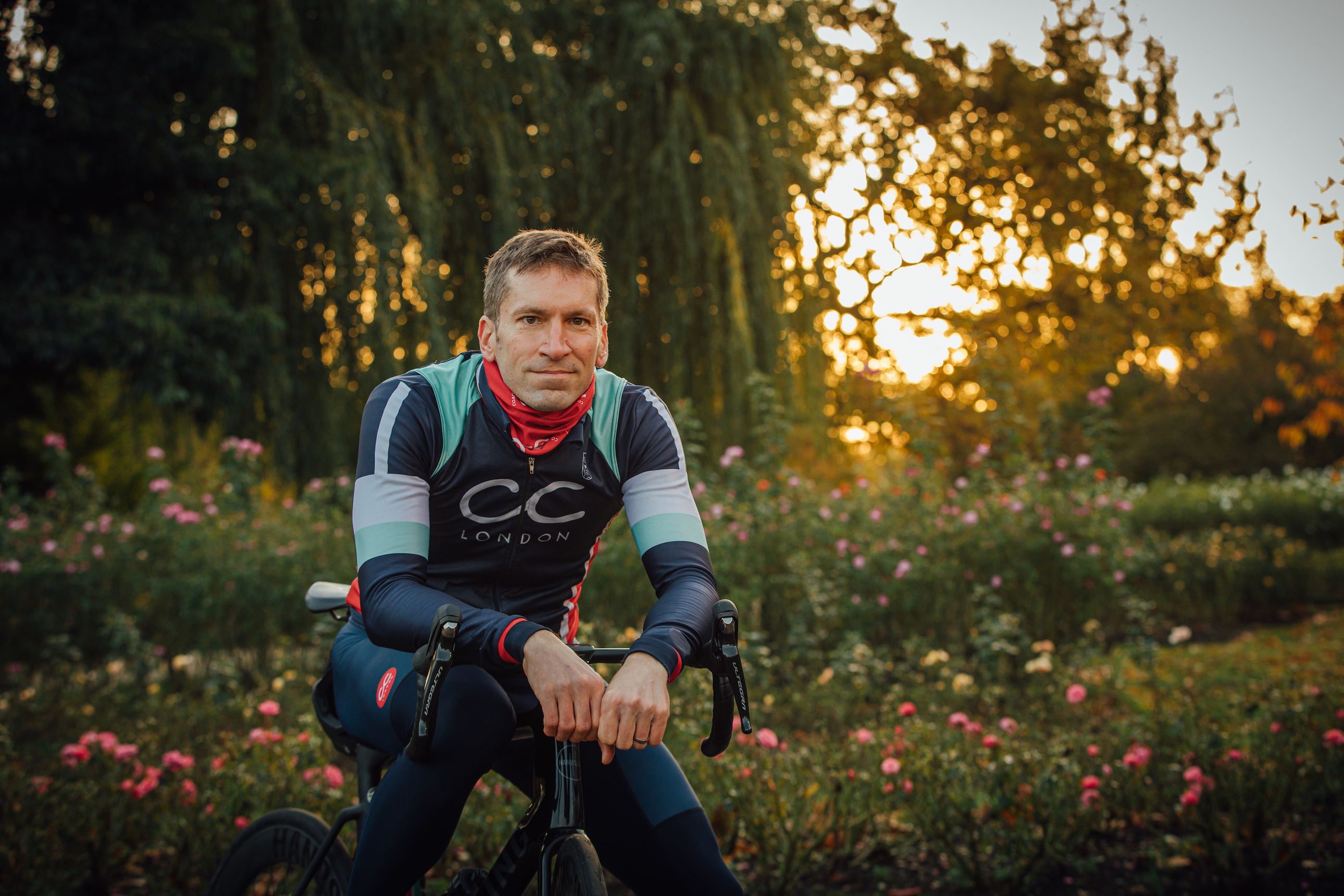
Iain McNaught
Iain McNaught: The freedom to focus
Iain McNaught, 44, works in finance and rides with Cycling Club London. He’s a lifelong cyclist but only started racing in 2017. “I was progressing steadily but got stuck as an intermediate third-cat,” he says. Everything changed for McNaught this year when he won his first race, in July. What made the difference?
“I think the main thing was being able to schedule my time around training, instead of fitting in training around my life,” says McNaught. “I’d been working with Coach Watto [Ian Watson] and Stephen Byrne before the pandemic, but with lockdown I was finally able to do the training properly and at the time of day that suited me best,” he explains. “As a result of losing my commute, I also had more time to sleep,” he adds. “Picking off the marginal gains, such as upgrading to a faster bike, meant that I made the most of it.”
Indoor training was also a huge factor. “I was already involved in regular Zwift racing,” says McNaught. “With everyone forced indoors, more people were turning up to Zwift races. With bigger fields, it was more of a real goal. There’s something magic about being in a break with people you ride with in real life. The banter on Discord chat afterwards almost makes up for the in-real-life post-race debrief too.”
Another unintended consequence of being forced indoors was the welcome absence of winter illness. “Until lockdown, every winter I needed antibiotics for hacking coughs,” explains McNaught. “I never realised why I was getting ill all the time. I just put it down to pollution. It turns out that if I’m run down and tired and then I do intervals when it’s freezing cold, it’s just bad for me.”
What will he be carrying into 2022? “Now that things are starting to return to normal, I have less time and I also need to wake up earlier to ride. That’s tough,” admits McNaught. “When racing started back, the biggest change was learning how to corner again,” he jokes. “Zwift legs plus real-life bike handling is the holy grail. For next season, I will probably switch up the intensity to be more focused on particular race goals.”
How he did it: Prioritising consistent training; recovering better and looking after his health.
How he’s locking in the gains: Focusing on efficient and consistent training; setting specific goals; staying motivated and accountable through racing in a team on Zwift.
This feature was originally published in the 25 November 2021 print edition of Cycling Weekly magazine. Subscribe online and get the magazine delivered to your door every week.
Deena Blacking is a cycling coach and sports consultant at drivetrain.cc